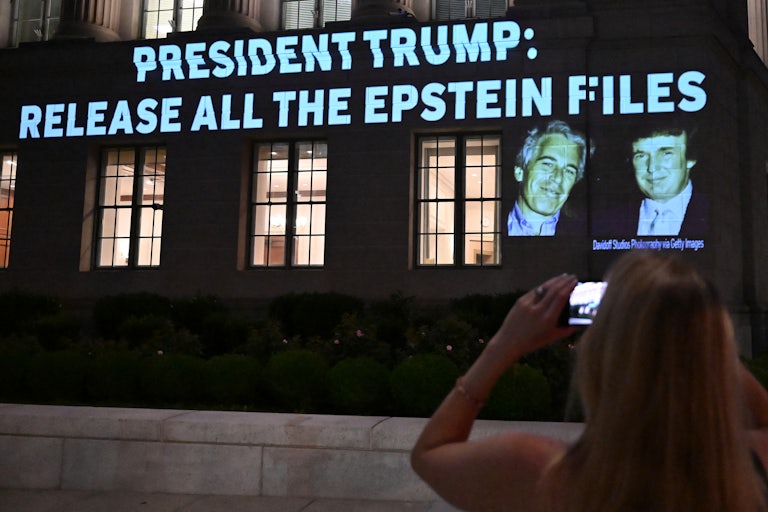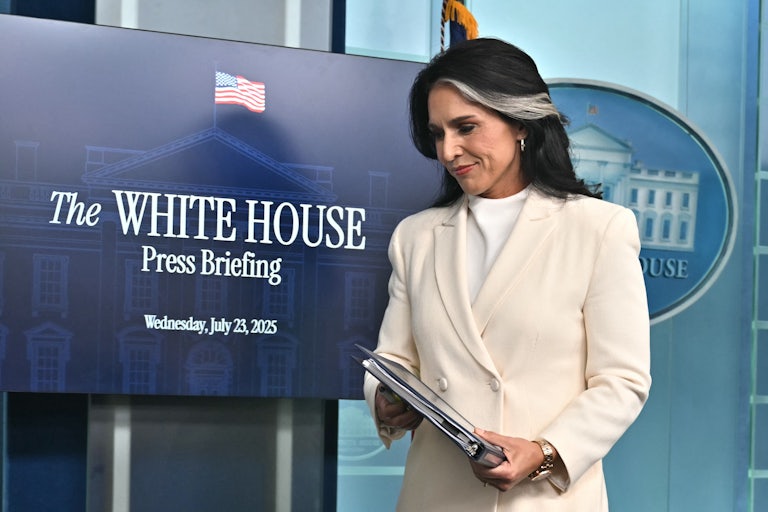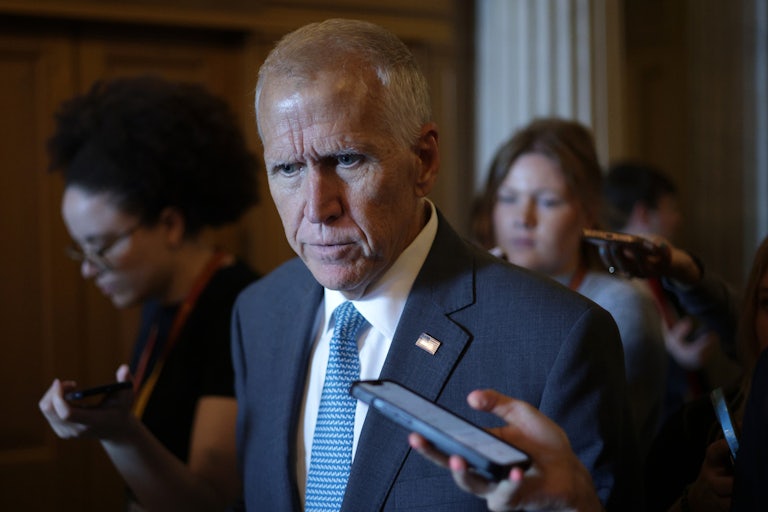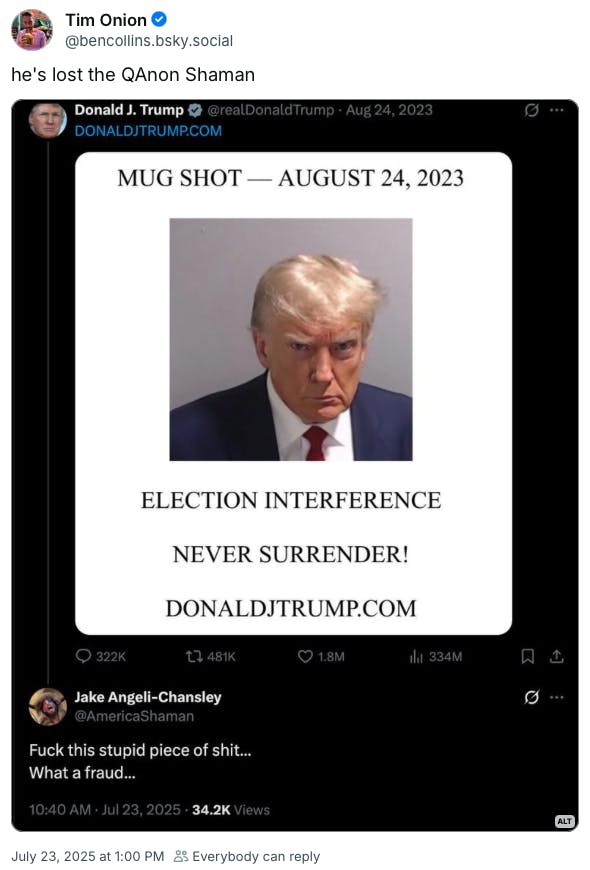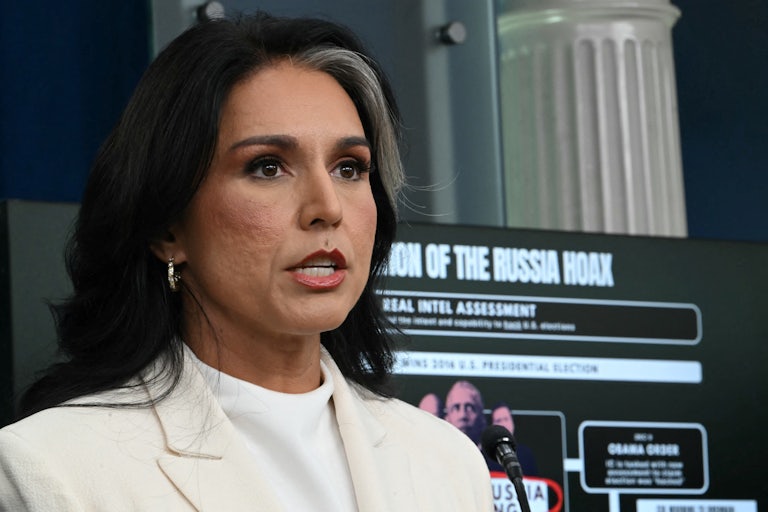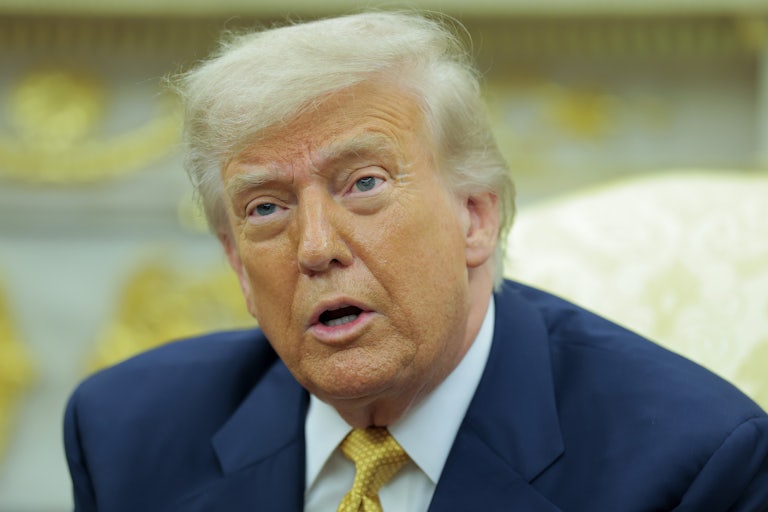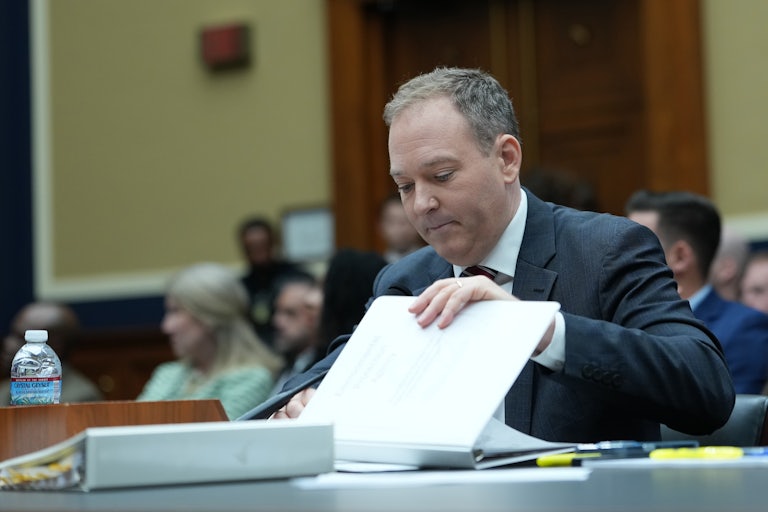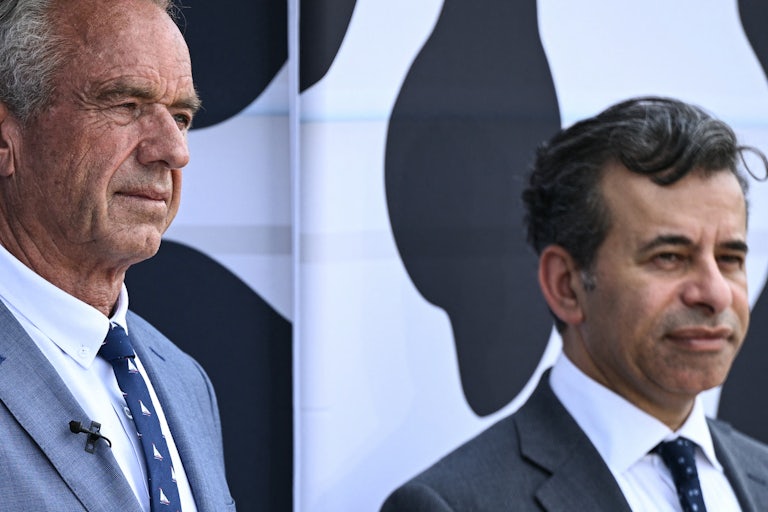Pete Hegseth’s Signalgate Saga Somehow Gets Worse
We now know where Defense Secretary Hegseth got the information he shared in that infamous Signal group chat.
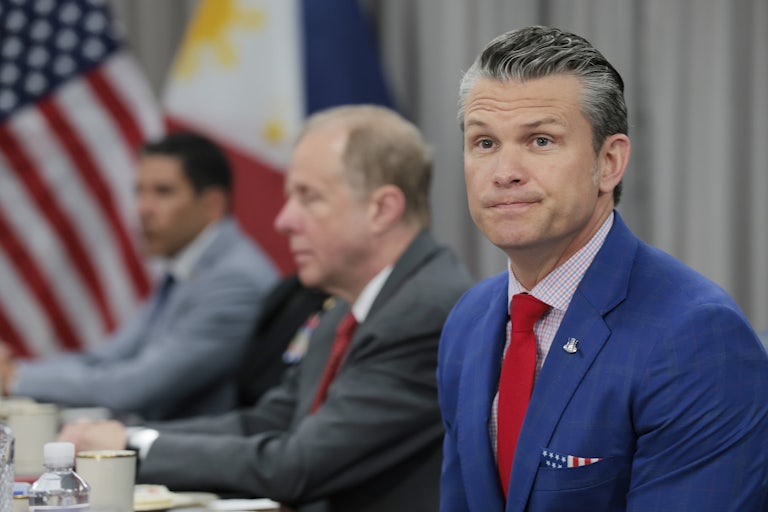
A new report pokes gaping holes in the Trump administration’s already unconvincing assurances that no classified information was disclosed during the March “Signalgate” fiasco.
The Washington Post reports that Defense Secretary Pete Hegseth’s infamous Signal messages regarding strikes on Yemen—which were shared in a group chat that inadvertently included Atlantic editor in chief Jeffrey Goldberg—derived from a classified email from General Michael Kurilla, according to evidence obtained by the Pentagon inspector general’s office.
Notably, Kurilla’s email was classified as “SECRET/NOFORN,” with the “SECRET” label indicating material whose unauthorized disclosure “could be expected to cause serious damage to the national security,” and “NOFORN” (for “No Foreign Dissemination”) denoting information that is not to be disseminated to non–U.S. citizens or foreign governments, nationals, or international organizations.
Trump officials have, time and again, insisted that nothing classified was shared during the debacle. Hegseth, for his part, dodged questions about the classification level of the information he shared during a June congressional hearing.
During an exchange with U.S. Representative and Marine veteran Seth Moulton, Hegseth claimed that whether the information was classified was not something “that would be disclosed in a public forum.”
Moulton pushed back, observing, “You can very well disclose whether or not it was classified. It’s not classified to disclose whether or not it was classified. And in fact, DOD regulations state that any classified information has to be labeled with its classification—was it classified ‘secret’ or ‘top secret.’”
“What’s not classified is that it was an incredibly successful mission against the Houthis,” Hegseth replied, leading Moulton to conclude, “OK, so it was classified,” before asking, once more, if the defense secretary was “trying to say that the information was unclassified.”
“I’m not trying to say anything,” Hegseth said.

